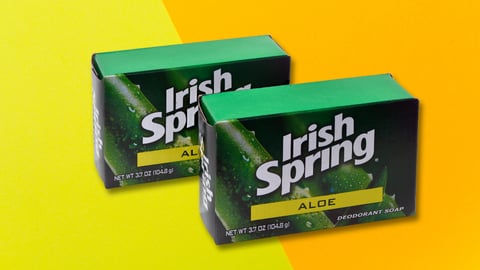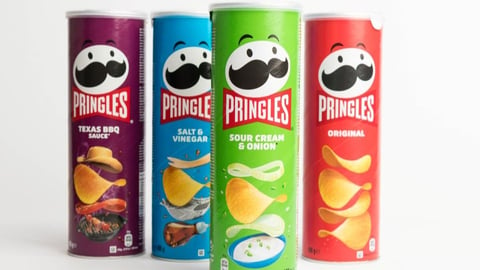For DTC House Resident, Stuck at Home isn’t Such a Bad Place to Be
It’s a great time to think about starting a company — that’s not something you expect to hear right now.
But for Eric Hutchinson, co-CEO of the Resident house of home goods brands, this mindset aligns well with the massive e-commerce growth triggered by nationwide stay-at-home orders. Now may actually be the precise time for a new businesses to seize new opportunities.
“Right now, it is a great time to be starting companies in a digital space,” Hutchinson says. “More and more consumers right now are online, looking for products and experiences. And so it's a great time to be an upstart operator that's helping to address one of the major needs in any industry.”
Hurdles remain, of course; the roadblocks surrounding travel are making things like product R&D more difficult. But for companies operating within the home goods space, the weeks their customers have spent dwelling indoors are translating to sales as they take hard looks at the four walls around them. General merchandise sales increased 3% for the week ending May 16 vs. the prior year period, according to The NPD Group, which noted that home-related categories remain the growth drivers.
See also: PepsiCo Quickly Launches 2 DTC Snack & Beverage Sites
Resident, which sells from its own site and through a network of more than 1,500 retailers, first formed in late 2016, during a bit of a “magic period” for the DTC space. The success of digital natives like Casper and Purple were shattering the myth that consumers needed to lie down in a store to test a mattress.
After launching the Nectar brand of memory foam mattresses in 2017, Resident subsequently launched a higher-end mattress brand (DreamCloud) in 2018, and then a brand of therapeutic mattresses (Level Sleep) in 2019. The company has also expanded into furniture (Bundle) and rugs (Wovenly).
It now sells through such retailers as P.C. Richard and Son, Mattress Warehouse and Cardi’s — as well as through a standalone Nectar-branded store in Tysons Corner, VA — generating $270 million in sales last year.
DTC Flexibility
Prior to Resident, Hutchinson was a co-founder of DTC hair color brand Madison Reed — an early pioneer within the digital native space. His tenure there provided a deep education in the omnichannel consumer buying journey, including the importance of providing out-of-the-box experiences and the benefits gleaned by tracking shoppers across devices and channels.
Like other DTCs, Resident focuses heavily on measuring attribution within the buying process. Doing so has uncovered such learnings including the fact that most of its customers interact with the company for about 12 to 14 clicks before making a purchase, demonstrating a significant amount of research prior to buying and providing information for Resident to use in its targeted marketing.
To adjust for both its growth and changing consumer needs, the company has gone through three iterations of its e-commerce platform — site speed is a particular priority for Resident — and it’s continually evolving the data science within its marketing technology. It incorporates such things as weather forecasts and weather patterns by geography in order to predict when consumers are likely to make purchases.
See also: Reimagining Customer Experience for a Post-COVID-19 World
It’s also uncovered that its fastest group of adopters are those in the 40- to 55-year-old bracket — an age group he describes as an underserved portion of the population. As such, the company is developing value propositions to resonate specifically with this group.
After all, while retailers are eager to open their doors, consumer comfort in returning remains to be seen — whereas comfort with e-commerce is growing. “One of the interesting things we're seeing across categories is, when forced, the customer has developed a comfort of making that purchase online and the structure is finally able to support the logistics side,” says Hutchinson.
With that said, even with physical retail’s uncertain future, Resident remains focused on building out its retail network as it prepares to meet consumers wherever they’re most comfortable shopping.
‘We've tried to set up an ecosystem where we're agnostic to where the consumer wants to shop,” says Hutchinson. “We’re trying to be as flexible as possible so that we aren't needing to read the tea leaves on what's going to happen in three to six months, but we're just kind of ready for all eventualities.”
Being flexible also means learning to navigate the challenges of DTC as the company grows, when it's a little harder to stay nimble.
“Small companies get to be much more personalized in terms of communication and how you manage it,” he notes. “As you get bigger and bigger, there's just more volume that you have to manage through. As we've gotten bigger, what we've really tried to do is make sure that we have a strong foundation so that the promise we're making to consumers we're able to deliver across much higher volume. That means working with multiple carriers [and] having multiple products that speak to different demographics.”
While Resident has faced some logistics struggles during the health crisis as its carriers have adjusted to the increased volume, Hutchinson said it’s been able to manage through them because its products are distributed widely across the country. That has, however, included extending its shipping promise to its customers; its previous goal was having 85% of its products shipped within 48 hours, and this was extended to five to seven days of receiving an order.
Clear communication with consumers about this switch has been paramount. “I think consumers understand right now that things are going to be either backordered or take a little bit longer, but the better job you can do to accurately communicate with consumers what you're going to be able to deliver on is really helpful [although] easier said than done.”









